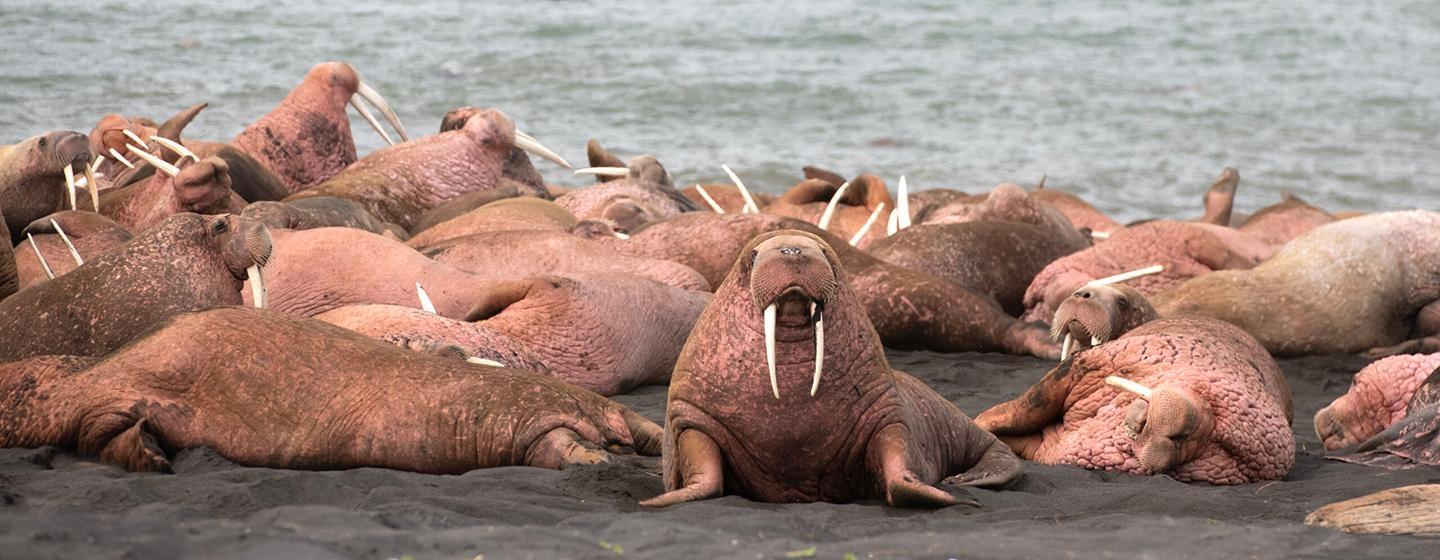Nature, Walrus: Life on Thin Ice
PBS Western Reserve (WNEO 45.1 / WEAO 49.1):
Wednesday, Oct. 22, at 8 PM
Thursday, Oct. 23, at 1 AM
In the Arctic seas between Alaska and Russia, about 250,000 walruses congregate. In spring, when the sea ice begins to melt, females and their calves migrate north on floating ice platforms, while the males head to nearby beaches. Follow a paleontologist on an Arctic adventure to uncover the hidden lives of walrus and the threats they face as climate change shrinks the sea ice.
Kirk Johnson, Sant Director of the Smithsonian National Museum of Natural History, follows his passion for these lumbering giants all the way to the coast of Nome, Alaska, where he encounters a female herd nursing their newborn pups on drifting sea ice. The reduction in sea ice means more crowds onshore, and sometimes babies get separated from their mothers. Johnson follows the plight of one orphan found alone on a beach in northern Alaska and taken into rehabilitation at the Alaska SeaLife Center. Johnson then travels to Round Island, the oldest wildlife sanctuary in Alaska, where male walruses come to warm up after the strenuous winter breeding season.



